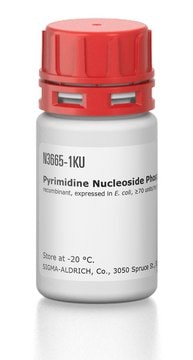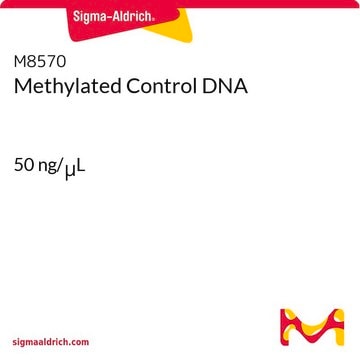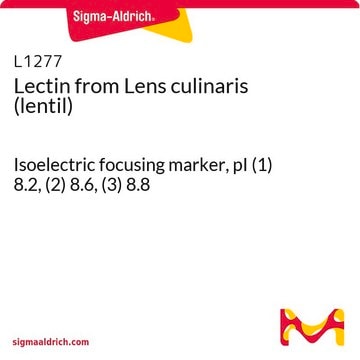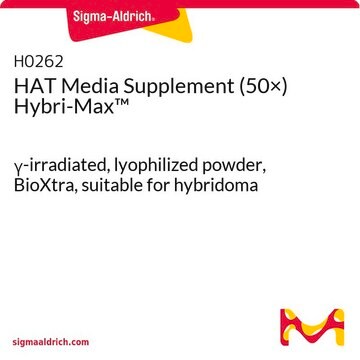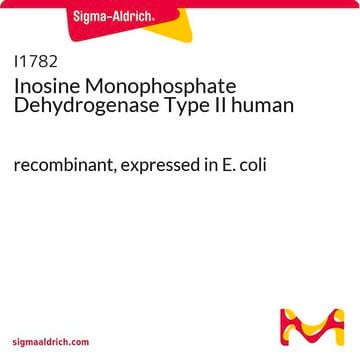N8264
Nucleoside Phosphorylase from microorganisms
lyophilized powder, ≥10 units/mg protein
Synonym(s):
Nucleoside Phosphorylase bacterial, PNP, Purine nucleoside phosphorylase, Purine nucleoside:orthophosphate ribosyltransferase
About This Item
Recommended Products
form
lyophilized powder
specific activity
≥10 units/mg protein
mol wt
~120 kDa
composition
Protein, 40-80%
storage temp.
−20°C
InChI
1S/C10H12N4O4/c15-2-6-7(16)8(17)10(18-6)14-4-13-5-1-11-3-12-9(5)14/h1,3-4,6-8,10,15-17H,2H2/t6-,7-,8-,10-/m1/s1
InChI key
MRWXACSTFXYYMV-FDDDBJFASA-N
Looking for similar products? Visit Product Comparison Guide
General description
Application
- in phosphopentomutase assay for adenosine synthesis
- for the conversion of 7-methylthioguanosine to 7-methylthioguanine
- in the synthesis of cytokinins in lyophilized cotton plant samples
Biochem/physiol Actions
Physical properties
Michaelis constants : 6.4 x 10-5M (Inosine), 3.2x10-4M (Pi)
Inhibitors : p-Chloromercuribenzoate, SDS, Hg++, Ag+Optimum pH : 7.5 - 8.0
Optimum temperature : 65oC
pH Stability : pH 6.0 - 9.0 (30oC, 16hr)
Thermal stability : below 60oC (pH 7.7, 30min)
Unit Definition
Physical form
Storage Class Code
11 - Combustible Solids
WGK
WGK 3
Flash Point(F)
Not applicable
Flash Point(C)
Not applicable
Personal Protective Equipment
Certificates of Analysis (COA)
Search for Certificates of Analysis (COA) by entering the products Lot/Batch Number. Lot and Batch Numbers can be found on a product’s label following the words ‘Lot’ or ‘Batch’.
Already Own This Product?
Find documentation for the products that you have recently purchased in the Document Library.
Customers Also Viewed
Our team of scientists has experience in all areas of research including Life Science, Material Science, Chemical Synthesis, Chromatography, Analytical and many others.
Contact Technical Service

